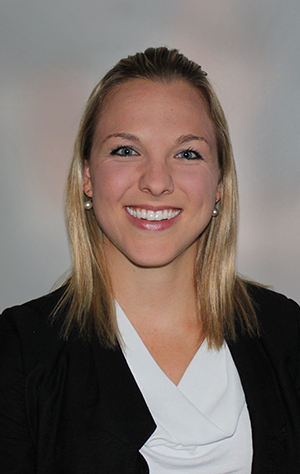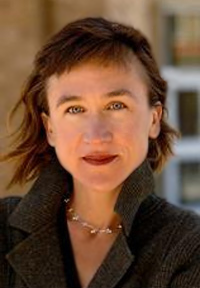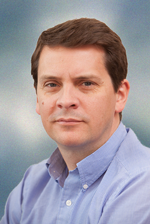Faculty News
Summer / Fall 2015
Hayhoe a HuffPo Climate Champion
Katharine Hayhoe, Professor in the Department of Political Science and Director of TTU's Climate Science Center, was named one of the Huffington Post's "20 Champions of Climate Change" in a Dec. 3 article. Among other names on the list were marine biologist Sylvia Alice Earle, first female chief scientist of the U.S. National Oceanic and Atmospheric Administration; former President of Mexico Felipe Calderon; actor Leonardo DiCaprio; atmospheric physicist Lames Hansen, formerly of NASA's Goddard Institute for Space Studies; Jamie Henn, activist and co-founder of 350.org; glaciologist Jean Robert Petit; and President of Brazil Dilma Rousseff.
Alquist Finds Free Will Affects Regret
Jessica Alquist, Assistant Professor in the Department of Psychological Sciences, was principal author of "The makings of might-have-beens: Effects of belief about free will on counterfactual thinking," in the Personality and Social Psychology Bulletin (Vol. 41, December 2015). The study found that people with a greater belief in free will generated more ways that a situation could have turned out differently than people with less belief in free will, suggesting that people's philosophical beliefs can affect how they reflect on their experiences.
McIntyre Wants to Up Bee Populations
Nancy McIntyre, Professor in the Department of Biological Sciences, is on a research team looking for answers to the decline in bee populations. The three-year study is funded by a $380,579 grant from the U.S. Department of Agriculture's Natural Resources Conservation Service. McIntyre is collaborating with these faculty from TTU's College of Agricultural Sciences & Natural Resources: Scott Longing, Assistant Professor and lead researcher; Robert Cox, Associate Professor; Cynthia McKenny, Rockwell Endowed Professor; and Charles West, Thornton Distinguished Chair.
Marshall Studies Memories of Pets
Philip Marshall, Professor in the Department of Psychological Sciences, was lead author of "Earliest memories of pets predict adult attitudes: phenomenological, structural, and textual analyses" in the Human-Animal Interaction Bulletin (Vol. 3, No. 1, 2015). The study examined adults' recollections of their earliest pet-related childhood experiences and found that people who recalled memories of their own pet and described more interactive pet memories had more positive adult attitudes towards pets.
Stoll Book a HuffPo Nonfiction Favorite
Mark Stoll, Associate Professor in the Department of History and Director of Environmental Studies at Texas Tech, has made the Huffington Post's list of "10 Delightful Books To Curl Up With This Winter" with his book, "Inherit the Holy Mountain: Religion and the Rise of American Environmentalism." The common thread running through the 2015 nonfiction titles that made the HuffPo list—aside from being a cozy read—is that they "meditate on themes that have the capacity to pull us apart, but also bind us together," the article said. In describing Stoll's "Inherit the Holy Mountain," the Huffington Post wrote that it "uncovers the surprising roots of modern environmentalism: religion. Against the supposed divide between cultural conservatism and natural conservation, Stoll shows how historical figures like Teddy Roosevelt, who created five national parks, were motivated by more than just a simple love for nature."
Witmore in Humanities Newsletter
Christopher Witmore, Associate Professor of Archaeology and Classics the Department of Classical & Modern Languages & Literatures, is featured in the Fall/Winter 2015 edition of News of the National Humanities Center. Witmore was the 2014-15 Donnelley Family Fellow at the National Humanities Center in North Carolina, where he worked on his new research project, "Old Lands: A Chorography of the Eastern Morea, Greece." The article defines chorography as the the ancient practice of descriptive writing about a region and its qualities, and quotes Witmore on his methodological approach to his subject matter and the distinctions he draws between history and memory.
Vanos Finds Playgrounds Too Hot

Jennifer Vanos, Assistant Professor in the Department of Geosciences' Atmospheric Sciences Group and a faculty associate with the Texas Tech Climate Science Center, published research on a pilot study showing that playground surfaces can reach dangerous temperature levels during summertime in the Southwestern United States. Vanos and colleagues from Arizona State University conducted research at a playground in suburban Phoenix, where air temperatures between 90- and 100-degrees translated into equipment surfaces hot enough to burn the children that touched them. Shade made all the difference. "This is all probably common sense to a lot of people," Vanos told TexasTechToday. "We were able to show that even on extremely hot days, a park that had a shade sail was safe to play in in terms of heat exposure and burning potential." Vanos wants to expand the study by using satellite imagery to predict the temperature of playground surfaces and equipment by time of day and geographic location. In time, this study may begin the discussion to add heat stress and temperature-related guidelines to construction standards for current and future playgrounds.
Parent Studies Appeal of Energy Drinks
Mike Parent, Assistant Professor in the Department of Psychological Sciences, has co-authored "Moderated mediation of the relationships between masculinity ideology, outcome expectations, and energy drink use," which appeared in the November 2015 issue of Health Psychology. This collaboration found that energy drink use was associated with a desire to appear more masculine to others, and also that heavier consumption of energy drinks was associated with sleep disturbances among men.
Gao to Host Nigerian Researcher

Weimin Gao, Associate Professor of Molecular Epidemiology and Associate Chair of the Department of Environmental Toxicology/ The Institute for Environmental & Human Health, was selected as one of only two professors in the United States to serve as host in the 2016 Global Senior Scholar Exchange Program (GSSEP), supported by The Society of Toxicology's education committee. (The other host is Mohamed Abou-Donia, Duke University Medical Center.) Gao will host and collaborate with Oladipo Ademuyiwa of the Federal University of Agriculture in Abeokuta, Nigeria. Gao, and Texas Tech, were chosen because the Department of Environmental Toxicology/The Institute for Environmental & Human Health has a well-established research program in the areas of molecular toxicology, analytical toxicology, ecotoxicology, aquatic toxicology, and human health. The Federal University of Agriculture currently does not have a curriculum in toxicology, so it is expected that Ademuyiwa's learning about the Texas Tech program will prove valuable.
Solís Leads USAID Mapping Project
Patricia Solís, Research Associate Professor in the Department of Geosciences, is project director for the new Mapping For Resilience University Consortium, a program meant to create and use spatial data to solve real-world development needs. TTU received $1 million for the project from the United States Agency for International Development (USAID) and will establish a consortium of universities—George Washington University and West Virginia University—to bring the project to fruition through a network of student mappers.
Surliuga's Bilingual Reading of Poetry
Victoria Surliuga, Associate Professor of Italian in the Department of Classical & Modern Languages & Literatures, held a book signing and gave a reading, in both Italian and English, of her new poetry book, "apnea" (Paola Gribaodo, Turin, 2015), in English and in Italian at the John D. Calandra Italian American Institute in New York City in October.
Phillips, Baker Study 'Vampire Gene'
Caleb Phillips, Assistant Professor, and Robert Baker, Horn Professor Emeritus, both of the Department of Biological Sciences, published new research in the journal Frontiers in Ecology and Evolution entitled "Secretory gene recruitments in vampire bat salivary adaptation and potential convergences with sanguivorous leeches." Their research presents evidence that other species, not just vampire bats, may have the capacity to evolve what is popularly called the "vampire gene." The researchers told TexasTechToday that the the genes found in the saliva of vampire bats also can be found in humans and most other animals. However, the vampire bat is unique among vertebrates because it feeds only on the blood of other mammals. Phillips, who also is curator of genetic resources at the Natural Science Research Laboratory, and Baker, who also is curator of mammals emeritus at the Natural Science Research Laboratory, said some of the venomous contents in the bats' saliva likely evolved by recruiting ancestral genes to produce new transcript molecules rather than by creating completely new gene sequences.
Bruning Measures Lightning
Eric Bruning, Assistant Professor of Atmospheric Sciences in the Department of Geosciences, has published research that uses a new technique, fractal-based calculations, to estimate the length of lightning bolts. This method does more, however, than provide more accurate length estimates. Because fractal-based calculations also estimate lightning's resultant nitrogen dioxide, which in turn is a precursor to ozone, the research ultimately may lead to more accurate climate forecasts. Bruning conducted this research with Ronald J. Thomas of the Langmuir Laboratory for Atmospheric Research at the New Mexico Institute of Mining and Technology, and it was published in the Journal of Geophysical Research: Atmospheres.
Grzankowski to Study in Cambridge
Alex Grzankowski, Assistant Professor in the Department of Philosophy, has been appointed to the "New Directions in the Study of the Mind" research initiative at Cambridge University from 2015-2017. The project, supported by the John Templeton Foundation, aims to investigate questions about intentionality and consciousness from a non-physicalist, non-reductive perspective and includes a weekly seminar in Cambridge, a number of workshops and a major conference.
Kolosov Receives Award for Essays

Jacqueline Kolosov, Professor in the Department of English, received the highly competitive and prestigious Mary Roberts Rinehart Award from Stillhouse Press for her collection of essays, "Motherhood, and the Places Between." Kolosov's collection of linked essays explores the inevitability of change through the lens of motherhood and infertility, loss and grief, and the power of self-transformation. Individual essays have been published in leading journals including The Sewanee Review, Bellevue Literary Review, and Terrain.org. "I have always written through all my experiences, so I knew I would write through this one," Kolosov told TexasTechToday, referring to her experiences with in vitro fertilization, miscarriage and the loss of two close friends to cancer. Kolosov expanded the memoir of loss, healing and renewal though her long attraction to the writings of Virginia Woolf and to a newfound love of horseback riding, the article said.
Weiss to Study Severe Storms
Chris Weiss, Associate Professor in the Department of Geosciences' Atmospheric Science Group, is on a research team to study how temperature, humidity and other observations impact the development of storms. The project is being funded by a $346,246 grant from the National Science Foundation. He will be using drones to help predict severe storms. "The short-term goals will be a better understanding of the fundamental predictability of severe thunderstorms and tornadoes," Weiss told TexasTechToday. "The hope is that there will be consistent signals of observables that correlate well with the likelihood of tornado production." The project will look first at how variables such as temperature and humidity at a given time may influence the later evolution of severe storms. Knowing the level of sensitivity in that relationship may help determine which observations impact storm severity.
Maccarone Sheds Light on Accretion
Tom Maccarone, Associate Professor in the Department of Physics, was principal researcher for the article, "Astrophysical accretion is a universal process in objects from proto-stars to supermassive black holes," published in the journal Science Advances. Maccarone's group discovered a relationship common to different types of accreting objects—proto-stars, white dwarfs, supermassive black holes—allowing all such objects to fit on a universal scale, suggesting that astrophysical accretion is a universal process, Maccarone told TexasTechToday. Another story about Maccarone's research published at Phys.org, includes a chart that compares the mass of these objects.
Surliuga Receives Grant for Exhibition
Victoria Surliuga, Associate Professor of Italian in the Department of Classical & Modern Languages & Literatures and Italian Program Coordinator, announced that the TTU Italian Program has received a $41,900 grant from the CH Foundation. Funds will go toward organizing a Lubbock exhibition of works by Italian artist Ezio Gribaudo. The Italy-based online magazine Artribune has called Gribaudo the Christopher Columbus of contemporary art. Gribaudo, whose style fits loosely into abstract expressionism, was awarded the Gold Medal for Culture and Art from the president of Italy. Another gold medal came from the mayor of Turin, where the artist was born in 1929 and still works in his studio. The exhibition will be held at LHUCA (The Louise Hopkins Underwood Center for the Arts) in 2016.
Sand to Find Young Supernovae
David Sand, Assistant Professor in the Department of Physics, received received a $538,039 grant from the National Science Foundation for his project, "Unveiling the Physics and Progenitors of Cosmic Explosions with a One Day Cadence Supernova Search." The project's goal is to find supernovae within a day of when they exploded, then trace each one's history to understand what type of star it was. "There's a whole zoo of different types of supernovae and we don't have a clear mapping of what stars become what supernovae," Sand told TexasTechToday. Sand and his students will focus on 400 galaxies per night, with a goal of finding 10 supernovae each year. The team hopes to measure the temperature, chemical abundance and radius of the star that exploded. Ultimately, that information should help astronomers anticipate which stars become which type of supernovae. The award started Sept. 15 and is expected to run through August 2018.
Schroeder Co-authored Bill Renewal
John Schroeder, Professor of Atmospheric Science in the Department of Geosciences and TTU's National Wind Institute, assisted in writing House Resolution 23, the National Windstorm Impact Reduction Program in 2013. This year, Congress passed, and President Barack Obama signed in to law Sept. 30, the continuation of the program as the National Windstorm Impact Reduction Act Reauthorization of 2015. The law was created to help improve the understanding and effects of windstorms and how to reduce their damaging impact.
Kiesling Testified for Bill Reneweal
Ernst Kiesling, Research Professor at TTU's National Wind Institute and Executive Director of the National Storm Shelter Association, testified before the House Science, Space and Technology committee in 2013 on behalf of House Resolution 23, the National Windstorm Impact Reduction Program in 2013. This year, Congress passed, and President Barack Obama signed in to law Sept. 30, the continuation of the program as the National Windstorm Impact Reduction Act Reauthorization of 2015. The law was created to help improve the understanding and effects of windstorms and how to reduce their damaging impact.
Zak Tracks Big Bend Damage at Event
John Zak, Professor in the Department of Biological Sciences, Associate Dean of the College of Arts & Sciences, and Co-Director of Texas Tech's Climate Science Center, was September’s featured speaker for the Climate Science Center’s “Science by the Glass” off-campus lecture series. His topic, “How to Damage a National Park Without Really Trying: The Tale of Big Bend,” attracted a standing-room-only crowd to Lubbock's Lantern Tavern, where he used photos, charts and graphs to explain how pollutants from as far away as Chicago find their way to Big Bend National Park, with devastating results.
Allen Delivers Kovalevsky Lecture
Linda Allen, Horn Professor of Mathematics in the Department of Mathematics & Statistics, was honored Aug. 13 for her contributions to the field by the Association of Women in Mathematics (AWM) and the Society for Industrial and Applied Mathematics (SIAM). Each year, the two groups jointly present the Sonia Kovalevsky Lectureship award to a woman who has made significant contributions to applied or computational mathematics. The award includes Allen delivering a lecture in Beijing during the 8th International Congress on Industrial and Applied Mathematics.
Tang Studies 'Mindful Meditation'

Yi-Yuan Tang, Professor in the Department of Psychological Sciences, has published a review of addiction research in Trends in Cognitive Sciences. The article, republished by CNN Philippines and in the Association for Psychological Science, suggests that people with addictive behaviors, such as smoking, may boost their self-control with mindful meditation, even among smokers who don't intend to quit. Tang, lead author, compared this form of mental training focuses on becoming self-aware of one's experience and can improve areas in the brain related to self-control. According to the Pakistan Daily Times, the researchers recruited 60 undergraduate students, 27 cigarette smokers and 33 nonsmokers, to participate in an integrative body-mind training program that included relaxation training techniques. Tang said that the students changed their smoking behavior, but were not aware of it. When researchers showed the data to a participant who claimed to have smoked 20 cigarettes, this person checked a pocket and was shocked to find 10 left. Two weeks after the study—even though many of the students said they smoked the same number of cigarettes before and after the training—those who received mindfulness meditation were found to have reduced smoking by 60 percent.
Pappas Named Administrative Fellow
Dimitri Pappas, Associate Professor in the Department of Chemistry, has been named President's Administrative Fellow by TTU President M. Duane Nellis and will assume the fellowship beginning Sept. 1, 2015 and ending May 31, 2016. During that time, Pappas will report directly to President Nellis and interact with the President's Executive Council. Nellis developed the program to give selected faculty members an opportunity to enhance their professional experiences by working as an administrator within an academic environment. "My duties will be to work on one or more projects in the president's office in order to advance the university," Pappas said. "I will work within his office and across campus to reach the goals set out at the start of the fellowship."
Talley Study Examines Alcohol Risk
Amelia E. Talley, Assistant Professor in the Department of Psychological Sciences, led a new study on the risks of alcohol abuse among non-heterosexual women. The study, titled "Longitudinal Associations among Discordant Sexual Orientation Dimensions and Hazardous Drinking in a Cohort of Sexual Minority Women," published in the June issue of the Journal of Health and Social Behavior. and was covered by Science Daily and the Lubbock Avalanche Journal. "There's a lot of research that shows people who are not heterosexual—that is, those who are bisexual, gay or lesbian—have higher levels of alcohol-use disorders," Tally said, "but it was not clear what explains that disparity aside from looking at the fact that they identify as non-heterosexual..." Talley's study searched for reasons. Data came from the Chicago Health and Life Experience of Women (CHLEW) study, which followed a group of self-identified lesbians from 2000-2010. That study was led by Tonda L. Hughes, who also was involved with Talley's study.
Zak to Serve as USDA Soil Health Advisor
John Zak, Professor in the Department of Biological Sciences, Associate Dean of the College of Arts & Sciences, and Co-Director of Texas Tech's Climate Science Center, has been asked by the USDA South Central Climate Hub to serve on its soil health advisory committee covering Texas, Oklahoma, and Kansas. The committee will establish pathways for collaboration among the individuals who are currently involved in the soil health work being undertaken in the region, and promote the adoption of soil health practices by farmers, ranchers, and other landowners.
Swingen Talks 'Ben Franklin's World'
Abigail Swingen, Assistant Professor in the Department of History, was interviewed by Liz Covart on "Ben Franklin's World," a program dedicated to early American history. The interview focused on Swingen's first book, titled "Competing Visions of Empire: Labor, Slavery, and the Origins of the British Atlantic Empire." In her book, and during the interview, Swingen approaches the topic of how and where the North American and Caribbean colonies fit within the British Empire. Her answers come through very different viewpoints: that of British imperial officers, and that of colonists who lived in the North American and Caribbean colonies.
Stoll Blogs About Teddy Roosevelt
Mark Stoll, Associate Professor in the Department of History and Director of Environmental Studies at Texas Tech, has posted a July 5 blog, headlined "The Christian Roots of Modern Environmentalism," to TIME Magazine's Zocalo Public Square column. Stoll credits President Theodore Roosevelt and his "profoundly moralistic worldview" for planting the seeds of environmental fervor. Stoll points out that, although recent biographers overlook Teddy Roosevelt's religious life, his contemporaries recognized him as "the greatest preacher of righteousness in modern times," according to one friend, who went on to describe the president as one who "made right living seem the natural thing, and there was no man beyond the reach of his preaching and example." Stoll's blog sets Roosevelt's views in context by remarking that many national leaders of the Progressive Era shared them.
McBee is Go-To on Motorcycle Riders
Randy D. McBee, Associate Dean in the College of Arts & Sciences and Associate Professor in the Department of History, continues to serve as a source of reliable quotes about people who ride motorcycles. In the aftermath of the biker shootout in Waco, McBee's new book, titled "Born to be Wild: The Rise of the American Motorcyclist," has most recently attracted interviews of McBee from numerous national and international media, most recently from Al Jazeera and The Wall Street Journal.
Hayhoe a Top 10 Environmental Leader
Katharine Hayhoe, Associate Professor in the Department of Political Science and Director of TTU's Climate Science Center, has been named a Top 10 Environmental Leader by the Huffington Post. Hayhoe received the recognition for her work in bridging the communication gaps about climate change to the general public. Others who made the list include May Boeve, executive director of 350.org; Julian McQueen, director of education and outreach at Green for All; Jane Kleeb, director of Bold Nebraska; Rev. Lennox Yearwood Jr., president and CEO of the Hip Hop Caucus; Adrianna Quintero, executive director of Voces Verdes and a senior attorney at the Natural Resources Defense Council; Heidi Cullen, chief scientist for Climate Central; Alex Honnold, free-solo rock climber; Billy Parish, founder and CEO of Mosaic; and Kandi Mossett, native energy and climate campaign organizer with the Indigenous Environmental Network.
Sand Confirms 3 Supernovae
David Sand, an Assistant Professor in the Department of Physics, is on a research team that has confirmed the location of three supernovae that exploded in the seemingly empty space between galaxies. In early June, Sand's team presented their findings at the FOE Supernova Conference at North Carolina State University, and their research paper has been accepted by the Astrophysical Journal. The team used images from the Hubble Space Telescope to confirm the explosions. "We undertook a big supernova survey to study these seemingly empty regions between galaxies because we want to know how many stars are there, too faint for us to see in typical observations," Sand told TexasTechToday. "One way to light up those regions is to watch and look for a supernova. Then we compare that number in empty space to the number inside galaxies, and it tells you how many stars there are."
Zak Welcomes Climate Science Interns
John Zak, Professor in the Department of Biological Sciences, Co-Director of TTU's Climate Science Center and Associate Dean in the College of Arts & Sciences, hosted a group of climate science interns from around the region. The group spent its week at Texas Tech conducting research as part of a multi-university tour of regional climate science programs.
Still Receives Commercialization Award

Brian Still, Assistant Professor in the Department of English and Director of TTU's Usability Research Lab (URL), was selected to receive the 2015 President's Excellence in Commercialization Award. Still was chosen for developing and bringing to market a mobile eye-tracking technology. Still, working alongside his graduate research assistant, Nathan Jahnke (PhD 2012), developed an eye tracking and control research system in 2010. Their creation spun off into a startup company, Grinbath, that licensed from TTU the invention they created in the URL. To date, Still, Jahnke, and the Grinbath team have generated five patents. After raising necessary funding, Grinbath began to make and then sell worldwide its first product, EyeGuide Tracker, in 2011. The following year it began to sell EyeGuide Assist, providing customers with limited or no hand functionality the ability to control a computer mouse with their eyes. Before the year was out, Still debuted Grinbath's next generation invention, EG, at a Tedx presentation in Lubbock. EG is now delivered to customers as a research tool. Grinbath clients include Google, PayPal, and Oxford University. Continuing research and collaboration could customize the technology to detect concussions, supplement wheelchair control, and even serve as a gaming platform.
College of Arts & Sciences
-
Address
Texas Tech University, Box 41034, Lubbock, TX 79409-1034 -
Phone
806.742.3831 -
Email
arts-and-sciences@ttu.edu
